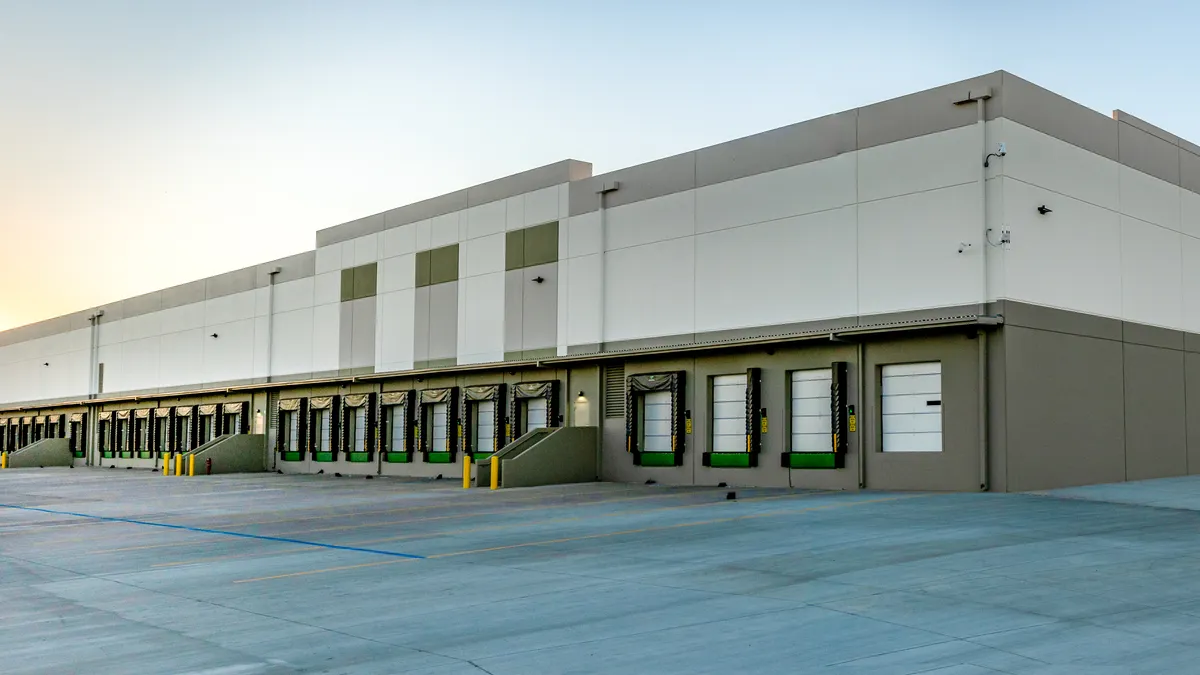Dive Brief:
- Demand growth in the warehousing market is expected to continue, but at a slower pace as more industrial space becomes available, according to a new forecast from the Deloitte Center for Financial Services.
- Deloitte's models show an additional 850 million square feet of industrial real estate will be required in the United States between 2019 and 2023. But Deloitte expects demand growth will sink to around 0.9%, which is about half of the 2018 level, the report said.
- Deloitte analysts expect the supply of industrial real estate to begin outpacing demand between 2019 and 2020, with 510 million square feet of new space expected to become available compared to 421 million square feet of new demand.
Dive Insight:
Demand in the warehousing market has been high for a number of years, driven largely by the increase in e-commerce. Deloitte called the last five years the "golden age of industrial real estate."
John D’Angelo, a managing director and real-estate leader at Deloitte Consulting, told The Wall Street Journal the industrial real estate market is likely to experience a "tempering of demand" in the near to midterm as inventory catches up with need.
But not everyone agrees with this assessment.
"I don't think more supply coming online will affect demand," Richard Barkham, CBRE’s head of Americas research and global chief economist, said in an interview with Supply Chain Dive.
CBRE also tracks the industrial real estate market and doesn't expect the market to slow down in the near future. Some markets haven't proliferated in the realm of e-commerce and will continue to create demand in this space, Barkham said. "We see quite a bit of growth coming from the shift in grocery," he said.
CBRE's modeling shows a slight dip in demand in 2021, but this is likely due to macroeconomic factors like a recession and not because of the availability of warehousing. Still, CBRE doesn't expect the dip to be as severe as previous recessions, which underscores how resilient the current market is, Barkham said.
The current trade tensions also make it difficult to forecast what will happen in this market as the rules governing cross-border commerce seem to be changing on a weekly basis.
"At the moment we don't see [the trade war] having too much effect," Barkham said.















